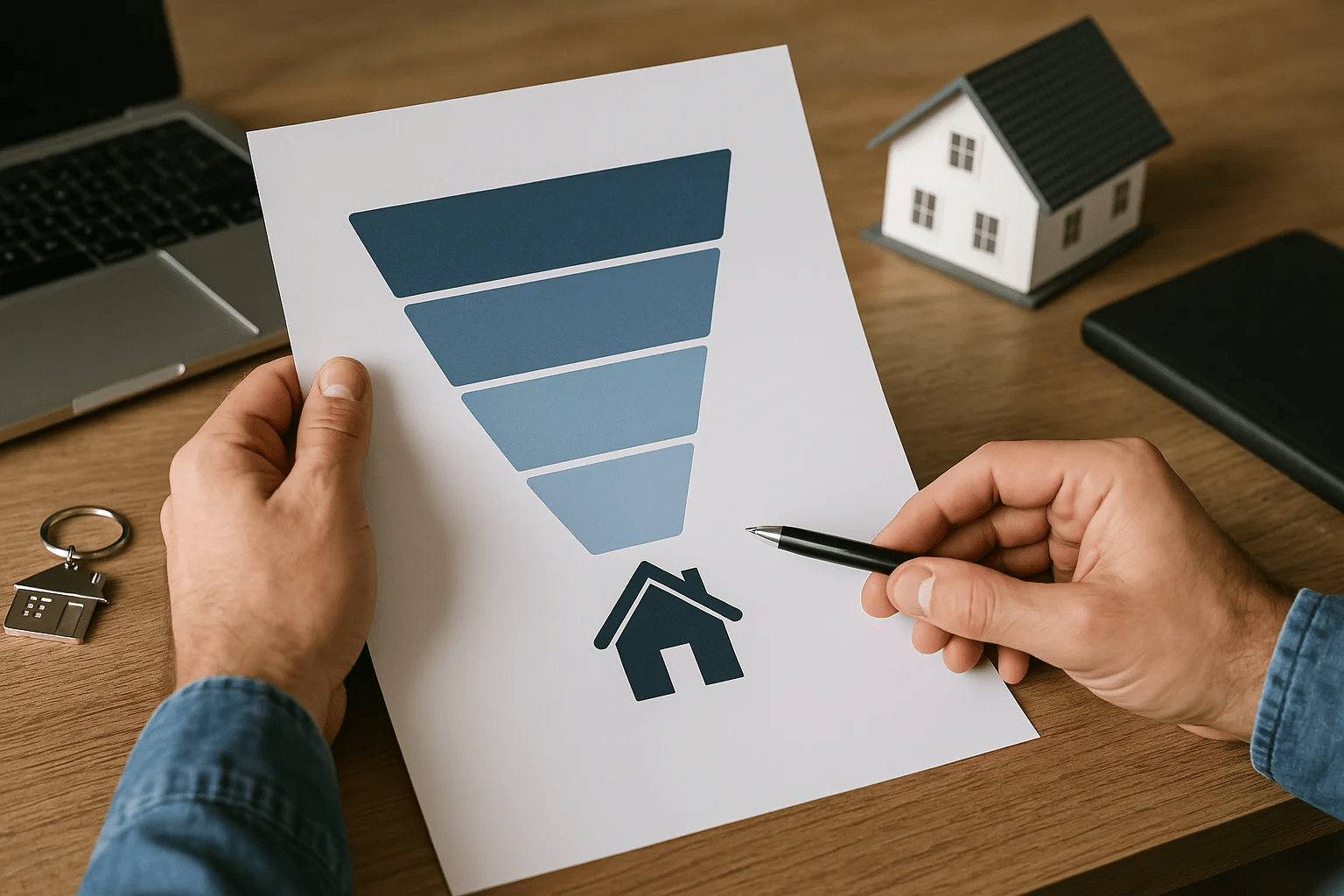In the ever-evolving world of real estate, mastering the sales funnel is crucial for converting leads into loyal clients. A well-structured sales funnel ensures that every prospect receives the right information at the right time, guiding them smoothly from initial interest to closing. As a real estate coach, understanding the nuances of this funnel can help you empower agents to optimize their sales process and increase conversions.
Understanding the Real Estate Sales Funnel
A real estate sales funnel is a step-by-step process that nurtures potential clients through different stages of their buying or selling journey. The key stages include:
1. Lead Generation (Top of the Funnel)
Attracting potential clients is the first step in building a successful real estate business. Effective lead generation strategies include:
- Search engine optimized (SEO) content marketing
- Paid social media and Google Ads
- Email marketing campaigns
- Networking and referrals
- Hosting webinars or virtual open houses
2. Lead Nurturing (Middle of the Funnel)
Once leads enter the funnel, it’s essential to build trust and keep them engaged. This stage involves:
- Personalized email sequences with valuable content
- Regular follow-ups via phone calls, texts, or social media
- Offering free resources such as buyer’s or seller’s guides
- Virtual and in-person property tours
3. Conversion (Bottom of the Funnel)
At this stage, leads are ready to take action. The focus should be on:
- Addressing last-minute objections
- Showcasing client testimonials and success stories
- Providing clear next steps for making an offer or listing a property
- Streamlining the transaction process with expert guidance
Optimizing Each Stage of the Funnel
To maximize lead conversions, it’s important to fine-tune each stage of the funnel. Here are some best practices:
1. Utilize Data-Driven Decision Making
Tracking key metrics such as email open rates, social media engagement, and website traffic can help identify bottlenecks in the funnel and refine marketing strategies accordingly.
2. Leverage Automation Tools
CRMs and marketing automation tools can streamline follow-ups, ensuring no lead is left unattended.
3. Create High-Value Content
Educational blog posts, video walkthroughs, and infographics can provide prospects with the information they need to move forward in their journey.
4. Personalize Client Interactions
Customizing communication based on a lead’s preferences and timeline enhances engagement and builds stronger relationships.
Conclusion
Mastering the real estate sales funnel is essential for long-term success in the industry. By understanding each stage and optimizing strategies accordingly, real estate agents can improve their conversion rates and grow their business effectively. As a real estate coach, guiding agents through this process will help them navigate the competitive market with confidence and close more deals. Start implementing these strategies today and watch your sales funnel perform at its peak!


